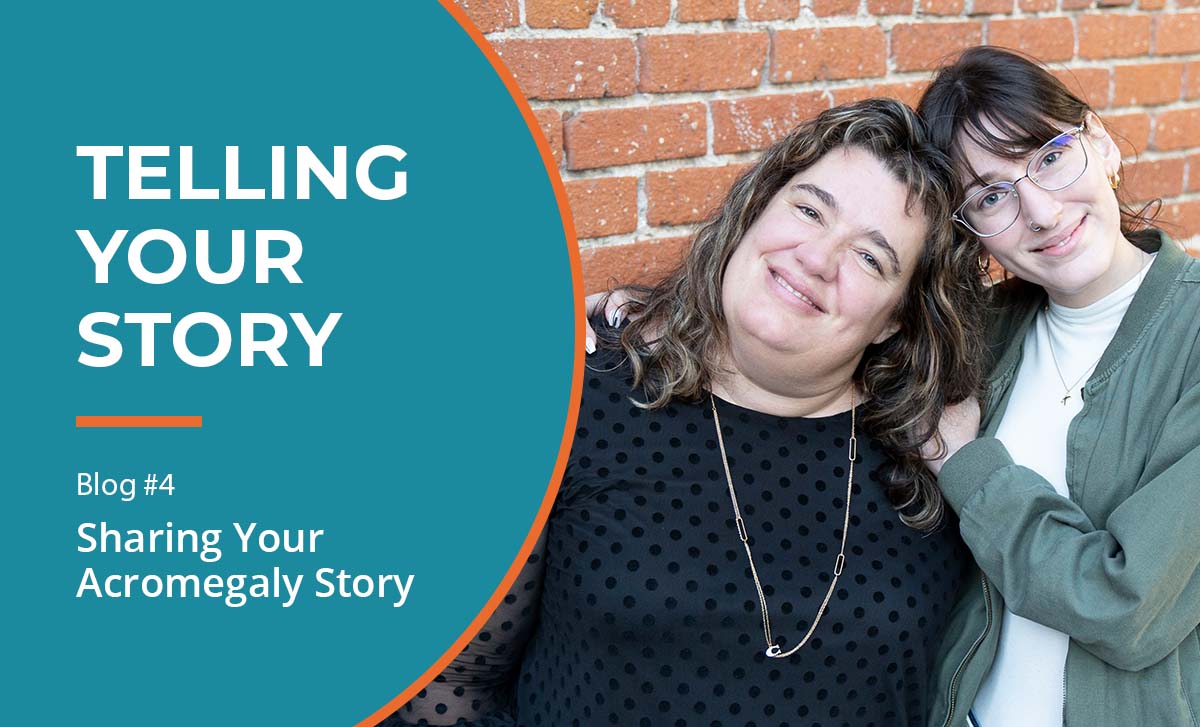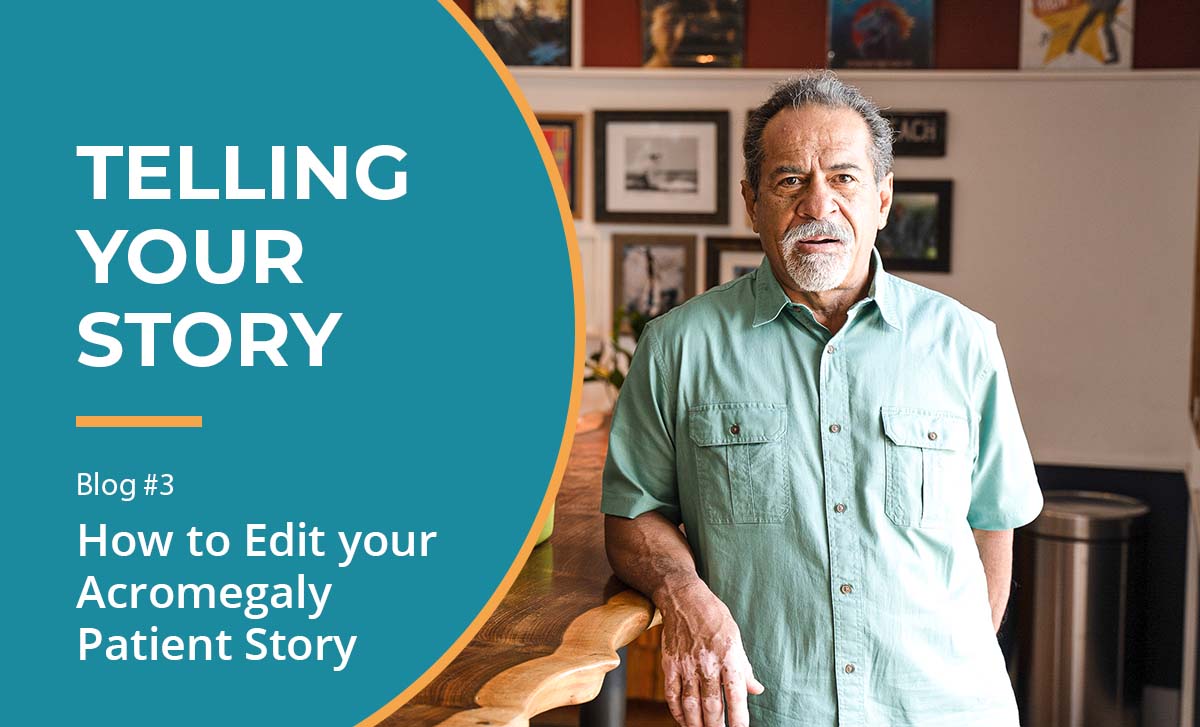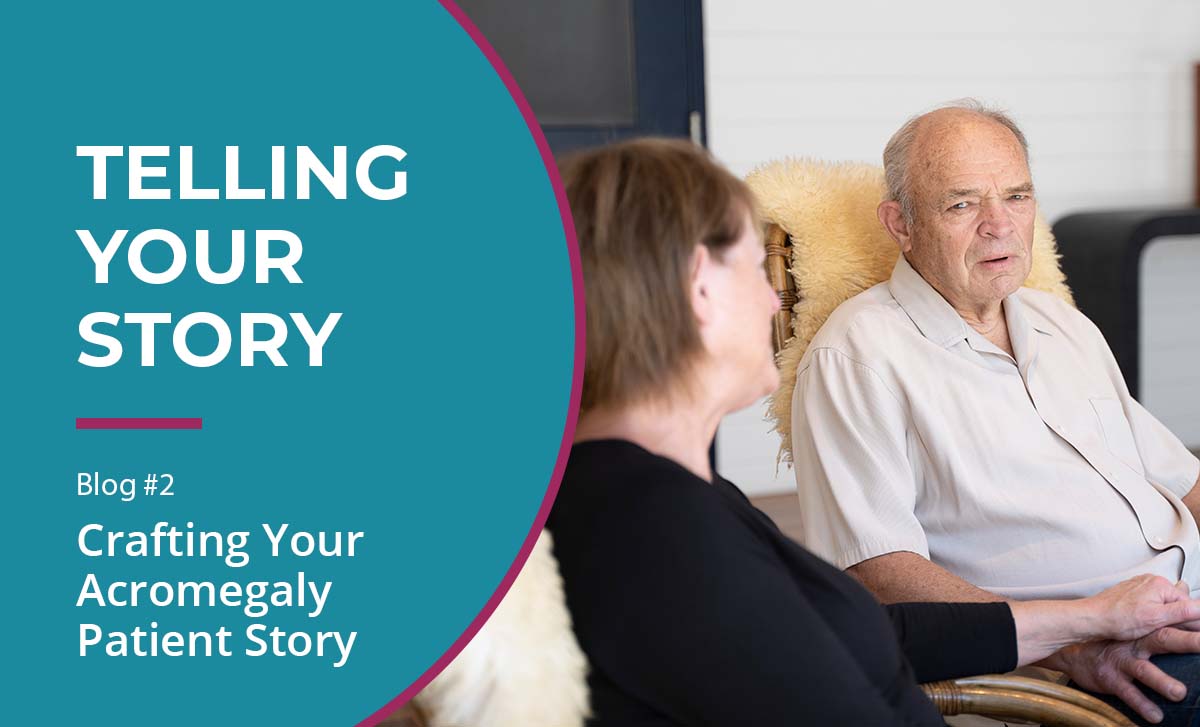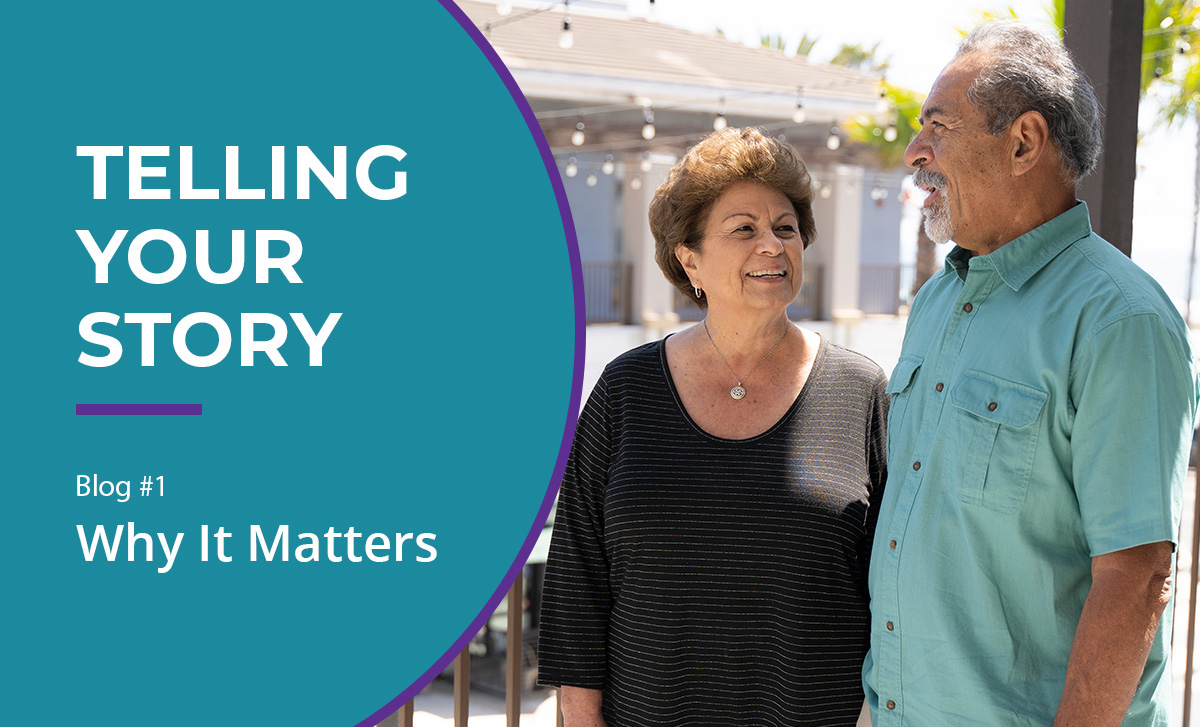Lights Up! Sharing Your Acromegaly Story
“Joe told me you have something called acromegaly. What’s that?”
“You always seem so tired. Is something wrong?”
As a person with acromegaly, chances are you’ve been asked to tell somebody a version of your acromegaly story. Yet, it can be difficult to know what to say and how to say it. Telling your acromegaly story can trigger complex emotions, making it hard to communicate clearly and succinctly. You may wonder, “Why should I tell my story at all?”
Of course, just because someone asks about your acromegaly doesn’t mean you’re obligated to discuss it. However, sharing your patient story can be empowering and help you cope. According to Ilana Jacqueline, author of Surviving and Thriving with an Invisible Chronic Illness, “Telling your story in all forms, whether spoken as a mentor, written online, or communicated to a friend, can be a strong tool for healing and can help you make sense of some of the conflicting feelings you might have about your disease.”
“Telling your story in all forms, whether spoken as a mentor, written online, or communicated to a friend, can be a strong tool for healing and can help you make sense of some of the conflicting feelings you might have about your disease.“
– Ilana Jacqueline
Author, Surviving and Thriving with an Invisible Chronic Illness
You may just be surprised by the benefits of telling your acromegaly patient story.
You can strengthen connections. From cave walls to campfires to the latest $200 million superhero movie, storytelling is a deeply ingrained human practice. In the words of author Joan Didion, “We tell ourselves stories in order to live.”1
Good stories that tap into human emotions can create empathy and help people connect with those whose life experiences differ from theirs.2
You can find it therapeutic. There’s a reason people say, “It feels good to get that off my chest.” Telling your story pushes you to create a coherent narrative out of something that may feel messy or ill-defined. In doing so, you can make sense of something difficult, bringing a sense of relief and reducing anxiety. Plus, storytelling can increase people’s capacity for empathy.
You can gain a sense of empowerment. Defining the when, where, why, and how of telling your story can give you strength and a sense of control, which can positively impact how you interact with the world around you. Shawn Atchley, a therapist and acromegaly patient, says, “I have seen that, if a person advocates for themselves in one area of their life, they often become more of an advocate in other areas of their life.”
You can help raise awareness. One of the significant challenges of having a rare disease is the general lack of awareness – even in the medical community. Your patient story can raise the profile of acromegaly and help others with a rare disease recognize they’re not alone.
You can inspire others. We’ve all watched a film or a play or read a book that we remember long after it’s over. These stories leave a powerful emotional imprint on our brains – and your acromegaly story can do the same for others. Hearing your story may inspire someone who has acromegaly or another rare disease to ask for help or reach out to a community for support.
If you’re feeling encouraged to tell your story, there are some tried-and-true storytelling techniques and tools that can help you craft a narrative. For detailed tips and best practices, check out the full article, “Acromegaly Patient Stories: How to Tell Yours Openly, Genuinely, and Effectively.”
Additional Resources
References
1. Joan Didion, The White Album, January 2014, Zola Books.
2. Paul Zak, “How Stories Change the Brain,” Greater Good Magazine, December 17, 2013, https://greatergood.berkeley.edu/article/item/how_stories_change_brain.




